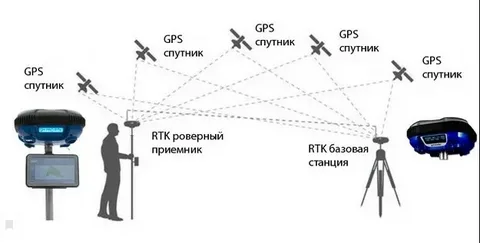Autonomous vehicles (AVs) are rapidly transforming the landscape of transportation, promising safer roads and more efficient travel. A critical technology driving this transformation is rtk gps, which plays a pivotal role in enhancing navigation accuracy and safety. This article explores the significance of RTK GPS in autonomous vehicles: enhancing navigation and safety, detailing how this technology works and its impact on self-driving car systems.
What is RTK GPS?
RTK (Real-Time Kinematic) GPS is a satellite navigation technique that improves the accuracy of position data derived from traditional GPS systems. While standard GPS provides location data with an accuracy of several meters, RTK GPS can deliver centimeter-level precision. This enhanced accuracy is crucial for autonomous vehicles, which require exact positioning to navigate complex environments and make real-time decisions.
The Role of RTK GPS in Autonomous Vehicle Navigation
Autonomous vehicles rely heavily on precise positioning to follow road lanes, avoid obstacles, and interact safely with other vehicles and pedestrians. Here’s how RTK GPS contributes to navigation:
- Centimeter-Accuracy Positioning: RTK GPS allows AVs to determine their precise location within centimeters rather than meters, which is vital for lane-keeping and making safe turns.
- Real-Time Corrections: By using data from ground-based reference stations, RTK GPS corrects satellite signals in real-time, minimizing errors caused by atmospheric conditions and signal interference.
- Integration with Other Sensors: RTK GPS complements lidar, radar, and cameras to create a comprehensive map of the vehicle’s surroundings, improving situational awareness.
Enhancing Safety through RTK GPS
Safety is paramount in autonomous vehicle operation, and RTK GPS significantly contributes to this aspect by:
- Reducing Navigation Errors: Precise positioning reduces the risk of veering off lanes or missing turns, preventing accidents caused by navigation mistakes.
- Improving Decision-Making: Accurate data from RTK GPS allows AVs to anticipate hazards and respond swiftly to dynamic road conditions.
- Supporting Redundancy Systems: RTK GPS serves as a reliable backup to other navigation systems, ensuring continuous safe operation even in challenging environments.
Challenges and Future Developments
While RTK GPS in autonomous vehicles: enhancing navigation and safety offers tremendous benefits, it faces challenges such as signal loss in urban canyons or tunnels. Ongoing research aims to integrate RTK GPS with other localization technologies, such as inertial measurement units (IMUs) and 5G connectivity, to ensure consistent performance.
Conclusion
In conclusion, RTK GPS in autonomous vehicles: enhancing navigation and safety is a cornerstone technology enabling the precise positioning and reliable operation of self-driving cars. As autonomous vehicle technology advances, the role of RTK GPS will only become more critical in ensuring safer and more efficient roadways worldwide.

